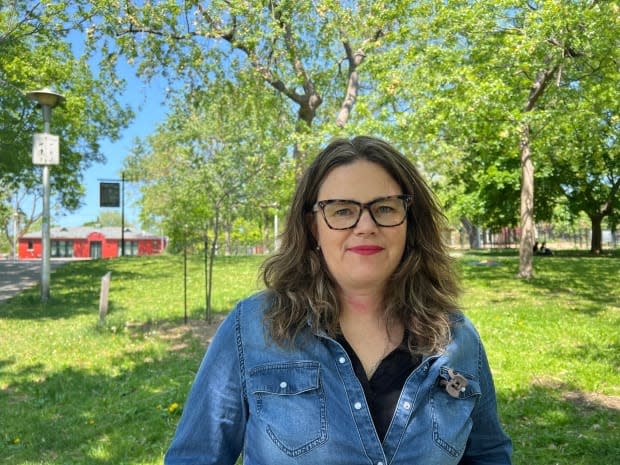Changes to how the federal government funds summer camps could mean some children in Quebec will be left without a spot.
The Association des camps du Québec says some camps are seeing their funding decrease by as much as 60 per cent this year. With less money, those camps will have to reduce staff – ultimately forcing them to register fewer kids.
“Sixty per cent is a ginormous amount of money for some of these camps and will really limit the way that they can function,” said Shauna Joyce, vice-president of the association, which represents about 1,000 camps.
The drop stems from recent changes made to the Canada Summer Jobs (CSJ) program which aims to boost youth employment by providing employers with wage subsidies. The federal government temporarily increased the program’s funding during the COVID-19 pandemic when it had a higher job creation target.
This year, with the youth unemployment rate about a third of what it was at the height of the pandemic, Employment and Social Development Canada (ESDC) decided to return the program to its pre-pandemic levels, it said in a statement.
“Like most things, people become reliant on those measures,” said Joyce. She says camps would have appreciated knowing about the funding change earlier so they could plan accordingly.
ESDC says each year applications exceed available funding.
Nancy Rozon, the assistant executive director for Loisirs 3000, which oversees 25 camps, learned about the changes made to CSJ in May as the camps were receiving their funding notices for the summer.
According to Rozon, six camps saw their funding drop while ten are still waiting to hear back about the status of their CSJ application, submitted in the winter.
She said federal funding for one of the camps dropped by 69 per cent while the others lost between 36 and 59 per cent of their funding compared to last year.
“Without the funding, we cannot afford a ‘shadow’ for the special needs kids and we have a lot of demand this year,” she says, referring to a position that provides one-on-one support.
Danielle Desrosiers has been sending her daughter, Carly, 21, who has special needs, to day camp every summer for almost a decade. She says camp is important for Carly’s mental health.
“It promotes autonomy and it also promotes a sense of self in her own world and confidence,” says Desrosiers.
She says she feels frustrated to know that some camps might not be able to accommodate people like her daughter because of the changes made by Ottawa.
According to Rozon, some parents like Desrosiers are currently on standby as camps sort out their summer budget.
“The parents have to wait until the beginning of camp to know if their children can come or not.”

“They [children] need more help for sure than in 2019,” she says.
She says they have become more anxious and require greater support.
Rozon is also worried that less funding will mean camps will have less staff to make sure everyone has an enjoyable experience and that might, in turn, discourage some counsellors from returning next year.
Funding also dependent on MPs’ priorities
What makes preparing for summer camps even more complicated, Rozon says, is the fact that funding varies according to the camp’s location. That’s because this year, CSJ applications sent by employers are assessed according to the local priorities set out by the MP representing the applicant’s riding.
An MP can add up to five local priorities to a general list.
In Quebec, only three MPs, representing the ridings of Compton-Stanstead, Châteauguay-Lacolle and Honoré-Mercier, have explicitly added day camps to that list.
The Quebec camps association says making summer camps a priority for funding would have made a lot of sense, especially this year.
“We know that we need the parents of these kids working in order to better meet the labour shortage that we’re facing,” Joyce said.
Beyond the practical benefits associated with access to summer camps, Desrosier says they are important to families for other reasons.
“It’s a time that people get to recharge, it gives [the] opportunity to have that space within the family but then to have stories to tell each other when they come back,” she says.
*****
Credit belongs to : ca.news.yahoo.com
 Atin Ito First Filipino Community Newspaper in Ontario
Atin Ito First Filipino Community Newspaper in Ontario






